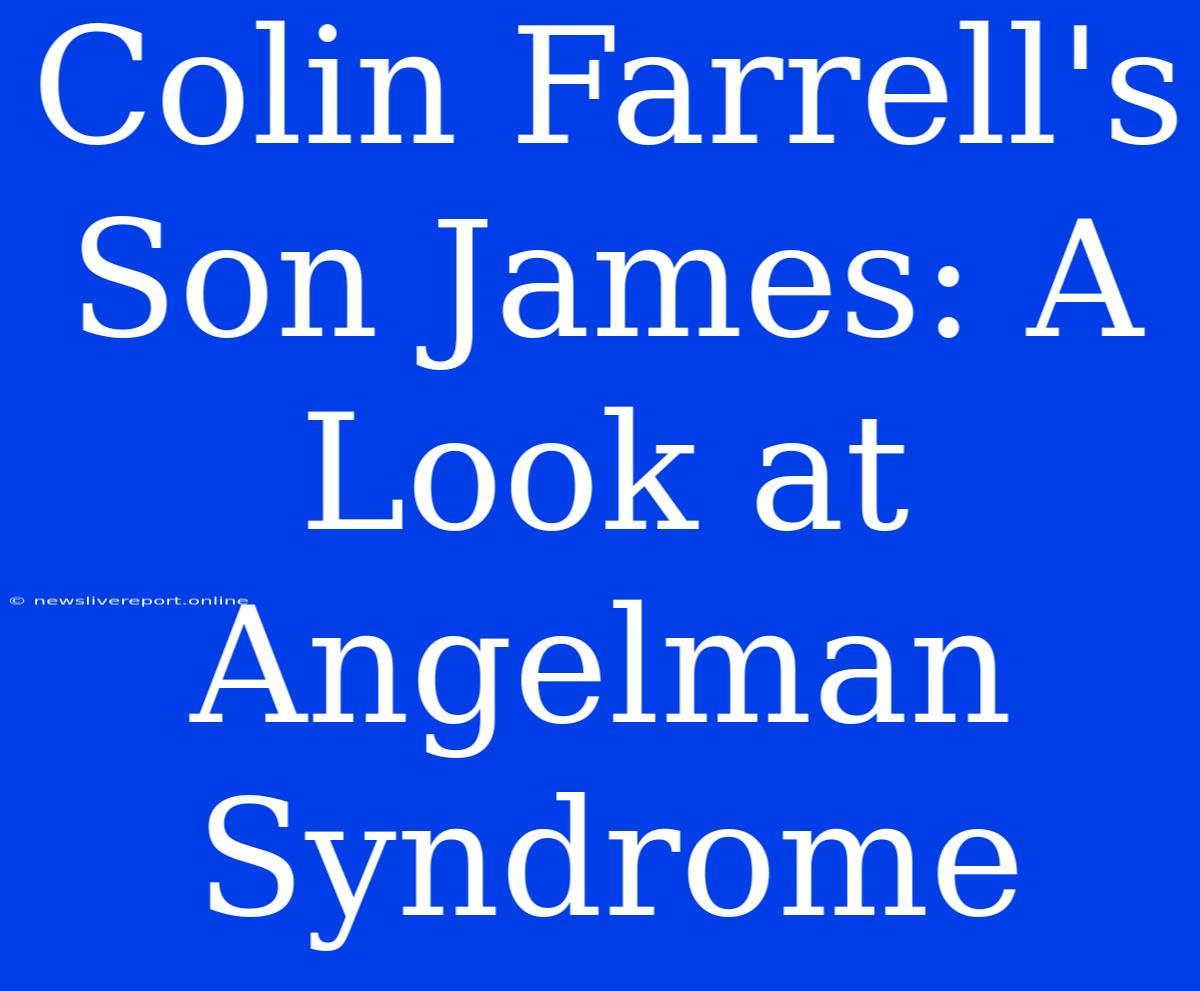Colin Farrell's Son James: A Look at Angelman Syndrome
Colin Farrell, the acclaimed Irish actor, is a devoted father to his three children, including his son James. While Farrell has always been protective of his children's privacy, he has recently shed light on his son's journey with Angelman syndrome, a rare genetic disorder.
What is Angelman Syndrome?
Angelman syndrome is a neuro-genetic disorder that affects the nervous system, impacting a child's development and ability to learn and move. The syndrome is caused by a missing or defective copy of the UBE3A gene, which is responsible for producing a protein essential for normal brain function.
Here are some common characteristics of Angelman syndrome:
- Developmental delays: Children with Angelman syndrome often have delays in reaching developmental milestones like walking and talking.
- Intellectual disability: While individuals with Angelman syndrome exhibit a wide range of abilities, they typically have intellectual disabilities.
- Speech difficulties: Many children with Angelman syndrome have difficulty speaking, often relying on nonverbal communication.
- Seizures: Epilepsy is a common occurrence in individuals with Angelman syndrome.
- Movement and balance issues: Children with Angelman syndrome may have ataxia, which affects their coordination and balance.
- Happy disposition: One of the most notable characteristics of Angelman syndrome is a happy and playful demeanor. Children with the syndrome often exhibit laughter and smiles frequently, even in challenging situations.
Colin Farrell's Advocacy
Farrell has spoken openly about his son's condition, raising awareness and advocating for the Angelman syndrome community. He has also highlighted the importance of early diagnosis and intervention, emphasizing that early diagnosis can lead to better outcomes for individuals with the syndrome.
His candidness has helped to de-stigmatize the disorder and shine a light on the challenges and triumphs experienced by families living with Angelman syndrome.
Hope and Resilience
Despite the challenges associated with Angelman syndrome, there is hope and resilience within the community. Research and advancements in therapy continue to offer new avenues for treatment and support.
Farrell's journey with James has shown the world the power of love, acceptance, and advocacy in navigating the unique challenges of Angelman syndrome. His willingness to share his experiences serves as a beacon of hope and inspiration for families facing similar circumstances.
Moving Forward
Angelman syndrome is a complex disorder that requires ongoing research and support. Through greater awareness and advocacy, the Angelman syndrome community can continue to work toward a brighter future for individuals with the syndrome and their families.
By sharing stories like James', we can create a more inclusive and supportive environment for all individuals affected by Angelman syndrome.

